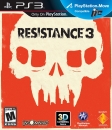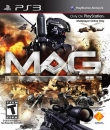spurgeonryan said:
sethnintendo said:
Well, I was hoping for a little more WW2 discussion considering today is Dec. 7th (Pearl Harbor). Where are all the WW2 buffs? |
I did know that ships were attacked here and there. Did you find anything else out about what I said? Or was I mistaken?
|
I really couldn't find anything (although I only did minimum research on wiki about Japan attacking US before Pearl Harbor. I have learned about the Flying Tigers in the past (1st American Volunteer Group of the Chinese Air force during 41-42). Americans aviators also volunteered for England before they entered the war officially. Anyways, here is info about what was going on with Japan and US before Pearl Harbor. The only other attack on anything US that I could find was attack on the USS Panay.
"The attack on Pearl Harbor was intended to neutralize the U.S. Pacific Fleet, and hence protect Japan's advance into Malaya and the Dutch East Indies, where she sought access to natural resources such as oil and rubber. War between Japan and the United States had been a possibility each nation had been aware of (and developed contingency plans for) since the 1920s, though tensions did not begin to grow seriously until Japan's 1931 invasion of Manchuria. Over the next decade, Japan continued to expand into China, leading to all-out war in 1937. Japan spent considerable effort trying to isolate China and achieve sufficient resource independence to attain victory on the mainland; the "Southern Operation" was designed to assist these efforts.[13]
From December 1937 events such as the Japanese attack on the USS Panay and the Nanking Massacre (more than 200,000 killed in indiscriminate massacres) swung public opinion in the West sharply against Japan and increased their fear of Japanese expansion,[14] which prompted the United States, the United Kingdom, and France to provide loan assistance for war supply contracts to the Republic of China.
In 1940, Japan invaded French Indochina in an effort to control supplies reaching China. The United States halted shipments of airplanes, parts, machine tools, and aviation gasoline, which was perceived by Japan as an unfriendly act.[nb 3] The U.S. did not stop oil exports to Japan at that time in part because prevailing sentiment in Washington was that such an action would be an extreme step, given Japanese dependence on U.S. oil,[16][17] and likely to be considered a provocation by Japan.
Early in 1941, President Franklin D. Roosevelt moved the Pacific Fleet to Hawaii from its previous base in San Diego and ordered a military buildup in the Philippines in the hope of discouraging Japanese aggression in the Far East. Because the Japanese high command was (mistakenly)[18] certain any attack on the British Southeast Asian colonies would bring the U.S. into the war,[18] a devastating preventive strike appeared to be the only way[18] to avoid U.S. naval interference. An invasion of the Philippines was also considered to be necessary by Japanese war planners. The U.S. War Plan Orange had envisioned defending the Philippines with a 40,000 man elite force. This was opposed by Douglas MacArthur, who felt that he would need a force ten times that size, and was never implemented.[19] By 1941, U.S. planners anticipated abandonment of the Philippines at the outbreak of war and orders to that effect were given in late 1941 to Admiral Thomas Hart, commander of the Asiatic Fleet.[20]
Pearl Harbor on October 30, 1941.
The U.S. ceased oil exports to Japan in July 1941, following Japanese expansion into French Indochina after the fall of France, in part because of new American restrictions on domestic oil consumption.[21] This in turn caused the Japanese to proceed with plans to take the Dutch East Indies, an oil-rich territory.[nb 4] The Japanese were faced with the option of either withdrawing from China and losing face or seizing and securing new sources of raw materials in the resource-rich, European-controlled colonies of South East Asia.
Preliminary planning for an attack on Pearl Harbor to protect the move into the "Southern Resource Area" (the Japanese term for the Dutch East Indies and Southeast Asia generally) had begun very early in 1941 under the auspices of Admiral Isoroku Yamamoto, then commanding Japan's Combined Fleet.[23] He won assent to formal planning and training for an attack from the Imperial Japanese Navy General Staff only after much contention with Naval Headquarters, including a threat to resign his command.[24] Full-scale planning was underway by early spring 1941, primarily by Captain Minoru Genda.[citation needed] Japanese planning staff studied the 1940 British air attack on the Italian fleet at Taranto intensively. It was of great use to them when planning their attack on U.S. naval forces in Pearl Harbor.[nb 5][nb 6]
Over the next several months, pilots trained, equipment was adapted, and intelligence collected. Despite these preparations, the attack plan was not approved by Emperor Hirohito until November 5, after the third of four Imperial Conferences called to consider the matter.[27] Final authorization was not given by the emperor until December 1, after a majority of Japanese leaders advised him the "Hull Note" would "destroy the fruits of the China incident, endanger Manchukuo and undermine Japanese control of Korea."[28]
By late 1941, many observers believed that hostilities between the U.S. and Japan were imminent. A Gallup poll just before the attack on Pearl Harbor found that 52% of Americans expected war with Japan, 27% did not expect war, and 21% had no opinion.[29] While U.S. Pacific bases and facilities had been placed on alert on multiple occasions, U.S. officials doubted Pearl Harbor would be the first target. They expected the Philippines to be attacked first. This presumption was due to the threat that the air bases throughout the country and the naval base at Manila posed to sea lanes, as well as the shipment of supplies to Japan from territory to the south. [30] They also incorrectly believed that Japan was not capable of mounting more than one major naval operation at a time.[31]" -wiki
































 I trust no one, not even myself.
I trust no one, not even myself.















)


